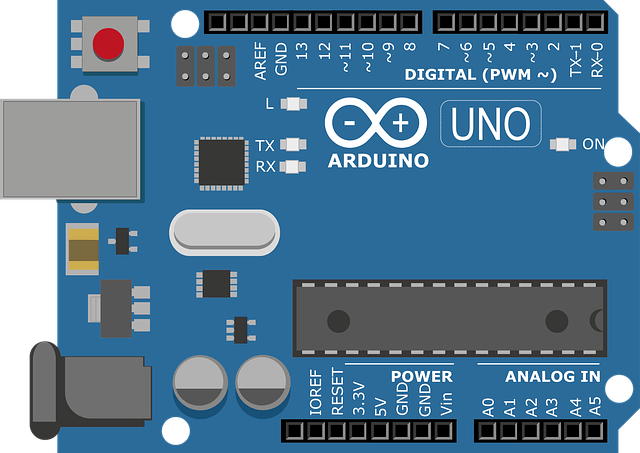To become a doctor in India, you need to follow a specific educational pathway. Following are the steps involved:

Complete 10+2 Education:
After completing your secondary education (10th grade), you need to enroll in a science stream (Physics, Chemistry, Biology) in higher secondary school (10+2). This is a two-year program, and you’ll need to study these subjects extensively to prepare for medical entrance exams.
Prepare for Medical Entrance Exams
In India, admission to medical colleges is highly competitive and based on national and state-level entrance exams. The two main medical entrance exams in India are the National Eligibility cum Entrance Test (NEET) and the All India Institute of Medical Sciences (AIIMS) entrance exam. Prepare for these exams by studying the prescribed syllabus, which includes Physics, Chemistry, Biology, and sometimes also General Knowledge.
Apply to Medical Colleges:
Once you have your entrance exam scores, you can apply to medical colleges across India. The application process varies depending on the college, but typically involves submitting your exam scores, academic records, and other required documents. Research the application deadlines and admission criteria for each college you are interested in.
Complete a Bachelor of Medicine, Bachelor of Surgery (MBBS) Degree:
The MBBS program in India generally spans five and a half years, including a one-year internship. The first four and a half years consist of classroom-based learning, clinical rotations, and practical training. The final year is dedicated to a compulsory rotating internship in various specialties, where you gain hands-on experience working in hospitals.
Register with the Medical Council of India (MCI):
After completing your MBBS, you must register with the Medical Council of India (MCI) or the respective State Medical Council (SMC) to practice as a medical professional. This registration is necessary for licensure and to legally practice medicine in India.
Postgraduate Specialization (Optional):
After obtaining your MBBS degree, you can choose to specialize in a specific medical field by pursuing a postgraduate degree (MD/MS) or a diploma program (PG Diploma). Entrance exams such as the NEET PG, AIIMS PG, or other state-level exams are conducted for admission to postgraduate courses.
Complete a Postgraduate Degree (MD/MS) or Diploma
Postgraduate programs generally take three years to complete for MD/MS degrees and two years for diploma courses. These programs provide advanced training and specialization in a specific area of medicine.
Continue Learning and Professional Development
Medicine is a continuously evolving field, and it’s important to stay updated with the latest developments and research. Participate in conferences, workshops, and engage in continuing medical education (CME) activities to enhance your knowledge and skills.
Remember to review the specific requirements and processes for medical education in India, as they can change over time. It’s also essential to consult official sources, such as the Medical Council of India (MCI) and respective medical colleges, for the most accurate and up-to-date information.
List of Medical Colleges in India
- All India Institute of Medical Sciences (AIIMS), Delhi: https://www.aiims.edu/
- Christian Medical College (CMC), Vellore: https://www.cmch-vellore.edu/
- Maulana Azad Medical College (MAMC), Delhi: http://www.mamc.ac.in/
- Armed Forces Medical College (AFMC), Pune: https://www.afmc.nic.in/
- Kasturba Medical College (KMC), Manipal: https://manipal.edu/kmc-manipal.html
- Lady Hardinge Medical College (LHMC), Delhi: http://lhmc-hosp.gov.in/
- King George’s Medical University (KGMU), Lucknow: http://www.kgmu.org/
- Grant Medical College, Mumbai: https://www.gmcjjh.org/
- Jawaharlal Institute of Postgraduate Medical Education & Research (JIPMER), Puducherry: https://www.jipmer.edu.in/
- Madras Medical College (MMC), Chennai: http://www.mmc.tn.gov.in/
What is the criteria to get admission in Medical Colleges in India?
The criteria to get admission in medical colleges in India vary depending on the college. However, there are some general eligibility criteria that all students must meet. These include:
- Passing the 12th grade with Physics, Chemistry, and Biology (PCB) as the major subjects.
- Achieving a minimum of 50% aggregate marks in PCB for General Category and 40% for Reserved Category.
- Appearing for and qualifying the National Eligibility cum Entrance Test (NEET).
- Meeting the age requirements as set by the college.
In addition to these general eligibility criteria, some colleges may also have additional requirements, such as:
- Applicants must be citizens of India.
- Applicants must have completed their 12th grade from a recognized board.
- Applicants must have a valid passport.
It is important to check the eligibility criteria of the specific medical college you are interested in to ensure that you meet all of the requirements.
Some of the most popular Medical Entrance Exams in India
Here are some of the most popular medical entrance exams in India:
- NEET: The National Eligibility cum Entrance Test (NEET) is the single national-level entrance exam for MBBS and BDS courses in India. It is conducted by the National Testing Agency (NTA).
- AIIMS: The All India Institute of Medical Sciences (AIIMS) conducts its own entrance exam for admission to its MBBS program.
- JIPMER: The Jawaharlal Institute of Postgraduate Medical Education and Research (JIPMER) conducts its own entrance exam for admission to its MBBS program.
- KCET: The Karnataka Common Entrance Test (KCET) is the state-level entrance exam for MBBS and BDS courses in Karnataka.



